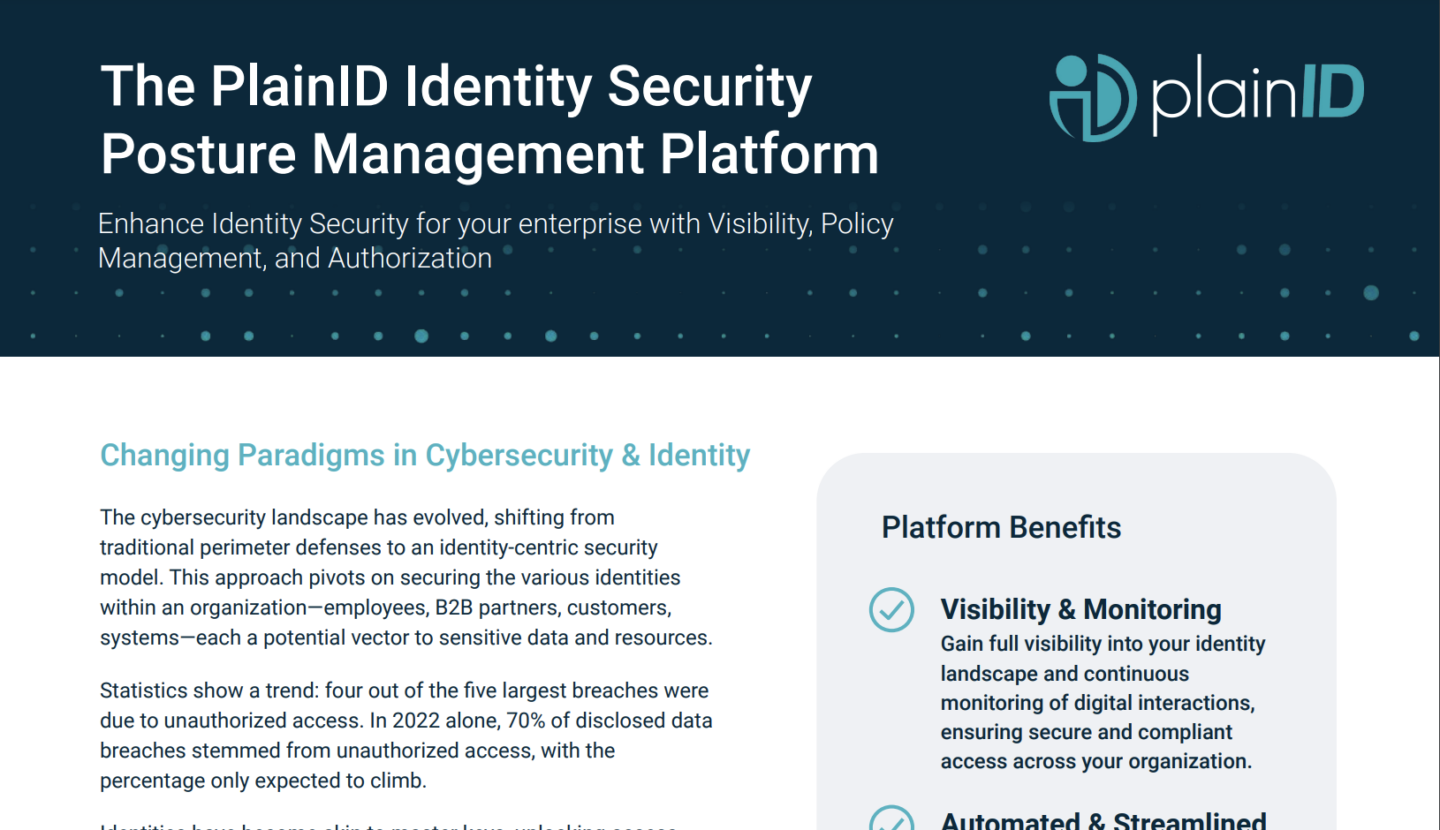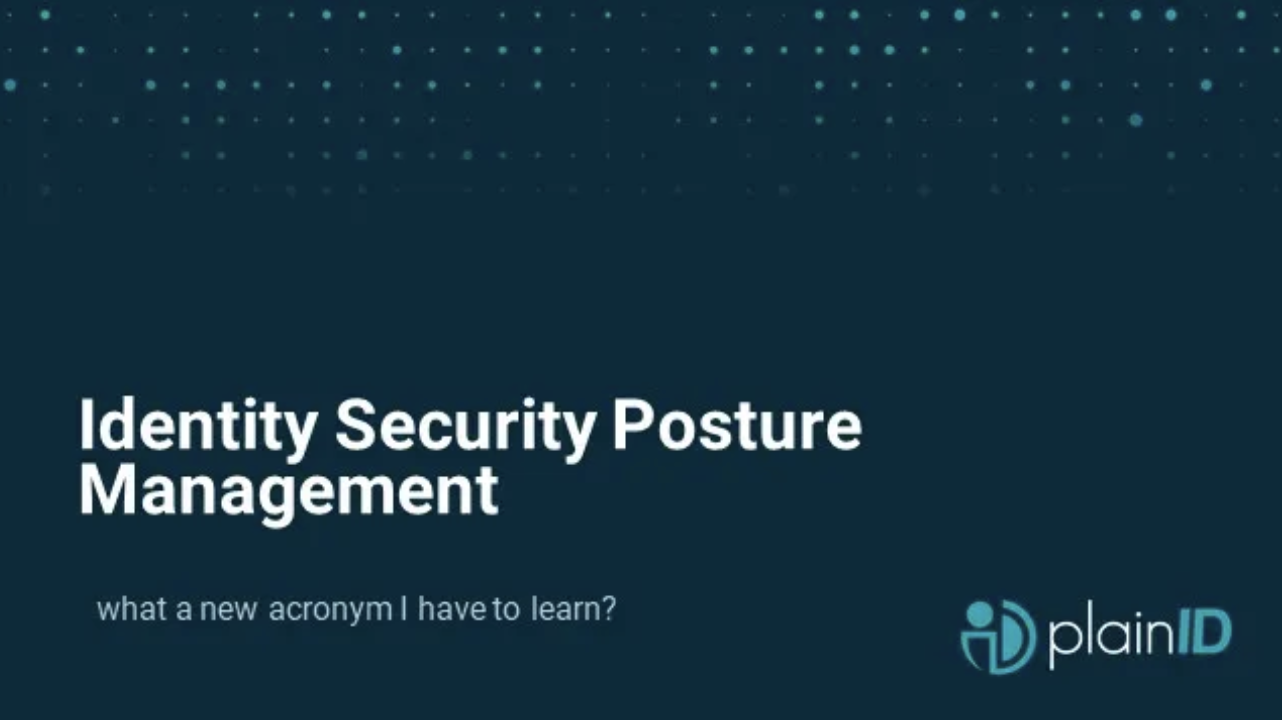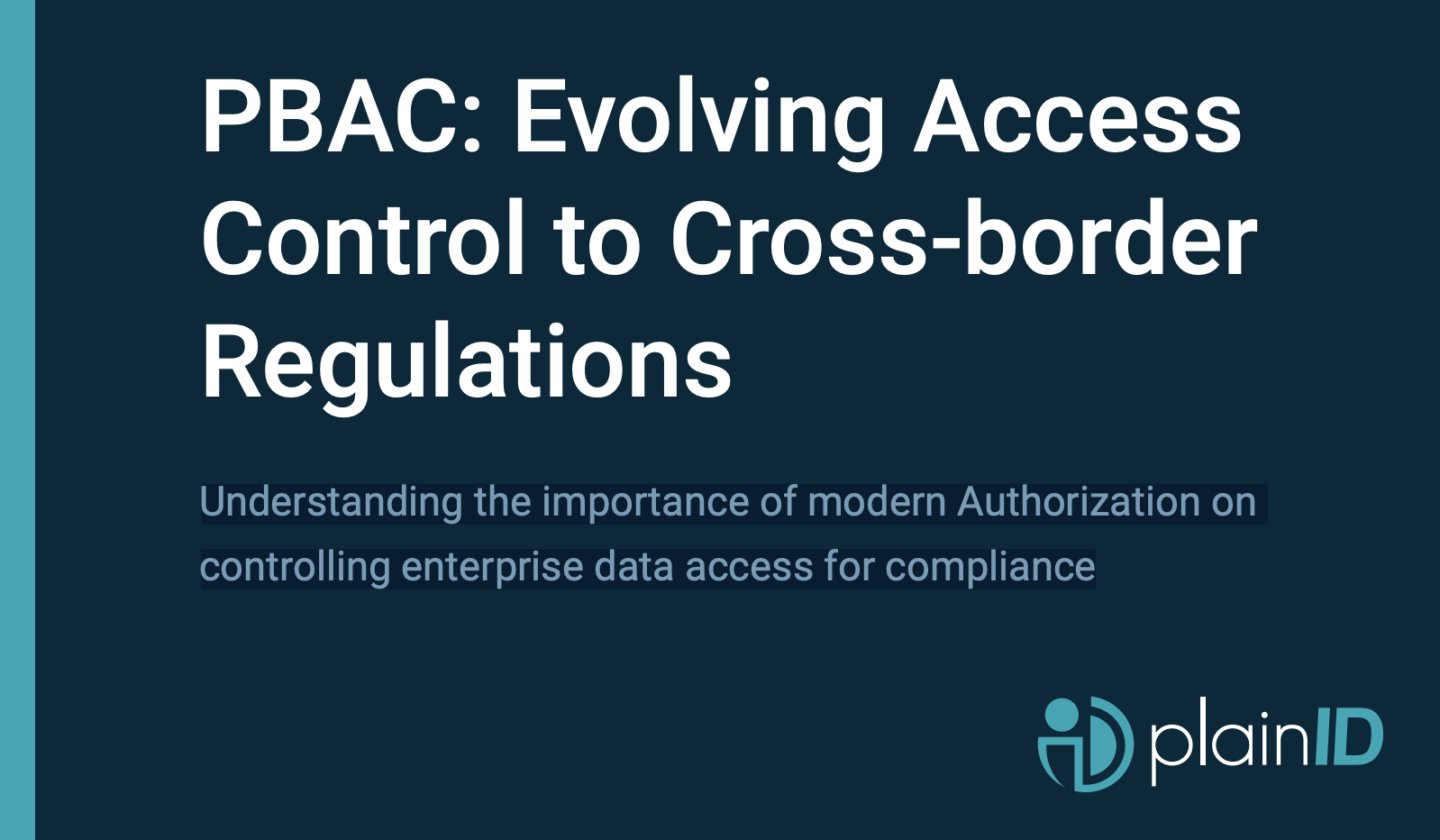Gain insight and control over your Identity Fabric.
Discover, Manage, and Authorize digital interactions for enhanced Identity Security across the Enterprise.
Designed for Identity-centric enterprises, Identity Security Posture Management addresses the complexities of modern digital interactions, stopping identity-based threats and unauthorized access to data. PlainID’s Identity Security Posture Management Platform revolutionizes enterprise security by helping enterprises discover identity activities, manage SaaS security policies, and authorize access to apps and data.
100+
Customers Worldwide
10M+
of B2B and Third Party Identities
1,000+
Mission Critical Application for Global 2,000
2 Trillion
Authorization per Year
Identity Security Posture Management Platform

Platform Benefits
Designed for Identity-centric enterprises, PlainID’s Identity Security Posture Management Platform is a comprehensive solution that addresses the complexities of modern digital interactions, stopping identity-based threats and unauthorized access to data. The all-in-one platform is the key to unlocking an agile and insightful security posture, defneding against identity-based threats in a complex digital world.
Enhanced KYI - Know Your Identity
Know Your Identity (KYI) with PlainID. Gain critical insights into your identity assurance level (IAL) and access pathways in real-time. The Platform enforces proactive security measures and ensures that every access request is evaluated against the backdrop of your unique identity landscape, keeping your enterprise a step ahead in identity security.

Centralized Risk Remediation & SaaS Protection
Mitigate risks and protect your SaaS applications effortlessly with PlainID. Our platform centralizes and manages access policies using a standardized approach. This streamlined control across cloud applications, SASE, and data platforms ensures simple and consistent policy management. Embrace a unified solution for efficient, scalable SaaS application protection.

Flexible, Risk-Based PBAC Framework
Adopt a flexible and granular approach to Identity Security with PlainID's risk-based Policy-Based Access Control (PBAC) framework. This advanced feature addresses the unique requirements of custom applications, APIs, microservices, and even data layers. Our PBAC framework helps enterprises adapt to the evolving landscape of business needs, regulatory compliance, and threats.

The Integration Hub
The PlainID Integration Hub offers out-of-the-box Authorizers™ and integrations to help enterprises standardize on Policy-Based Access Control (PBAC) and inform access with context-rich risk signals across the enterprise ecosystem.
Learn More







Interview with PlainID CEO Oren Ohayon Harel by TAG Cyber
Oren discusses how Identity Security and ISPM have become a “must-have” for cybersecurity & IAM professionals’ frameworks to remediate configurations, fortify cybersecurity, and stop identity-related breaches.

Get the Guide to Identity Security Posture Management
Learn about Identity-Centric Security Approaches to Zero Trust and
Least Privilege Access.
Related Resources



